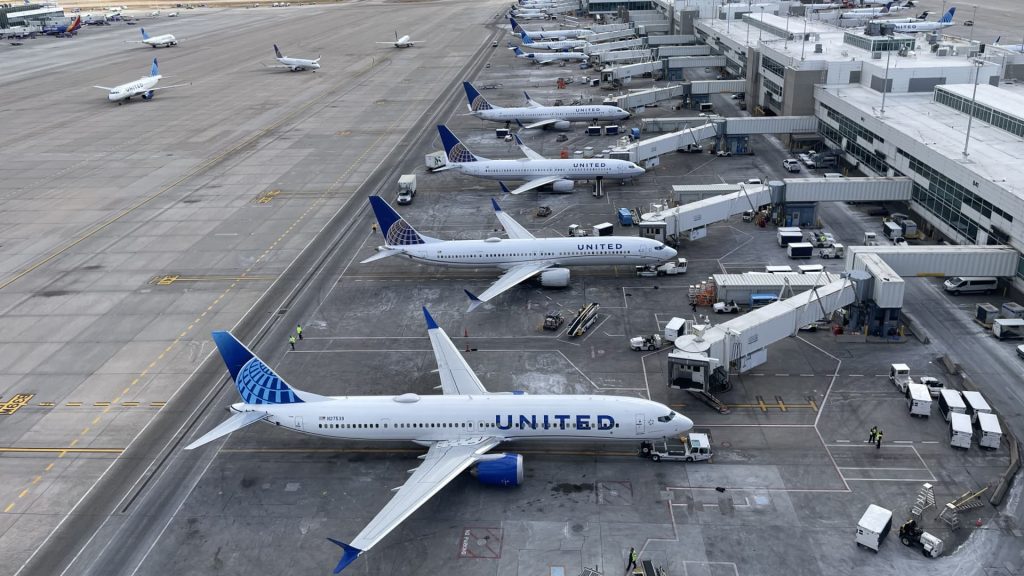United Airlines‘ second-quarter profit rose more than 20% from last year as strong demand for international travel boosted the carrier’s results, but its third-quarter forecast came in shy of estimates as an oversupply of flights weighs on fares.
United said Wednesday that it expects to earn between $2.75 and $3.25 a share on an adjusted basis in the current quarter, lower than the $3.44 a share analysts polled by LSEG estimate.
Here’s what United reported for the second quarter compared with what Wall Street expected, based on average estimates compiled by LSEG:
- Earnings per share: $4.14 adjusted vs. $3.93 expected
- Revenue: $14.99 billion vs. $15.06 billion expected
United earned $1.32 billion, or $3.96 per share, in the three months ended June 30, up from $1.08 billion, or $3.24 per share, a year earlier. Adjusting for one-time items, United reported second-quarter earnings of $4.14 a share, compared with $3.93 that analysts expected.
Revenue of $14.99 billion jumped 5.7% over last year, though it was just shy of estimates.
United and Delta Air Lines, which reported its results last week, have been standouts in the airline industry, where most carriers have been struggling with an increase in U.S. domestic capacity that has weighed on airfares.
Both carriers have added international flights, which have been in high demand after the pandemic, and premium offerings, like bigger lounges and more spacious seats, capitalizing on travelers willing to pay more for a ticket.
United CEO Scott Kirby said airlines have been trimming their schedules and that there will be an inflection point to moderate the supply next month.
“Looking forward, we see multiple airlines have begun to cancel loss-making capacity, and we expect leading unit revenue performance among our largest peers in the second half of the third quarter,” he said.
On Tuesday, Spirit Airlines cut its second-quarter forecast, citing weaker-than-expected revenue for fees like seating or luggage. Southwest Airlines and American Airlines, which report results on July 25, previously reduced their second-quarter estimates.
Read the full article here











